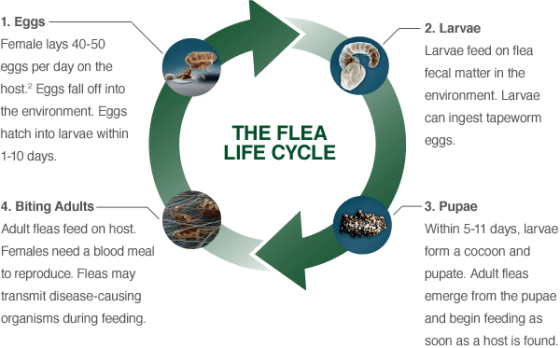Fleas are very common parasitic problem in both cats and dogs, using good effective flea prevention is key to stop these nasty parasites making a meal of your pet and you!.
Why should we treat fleas?
In addition to the itchy bites, fleas can also transmit diseases and possibly affect you and your pet’s health if they are not controlled.
How does a flea infestation manifest?
Fleas live and feed on the skin of animals all over the world. Fleas are small (1 - 3 mm long), wingless insects with flattened bodies that are dark brown. Their small flat bodies allow them to move through body hair where they bite and suck the blood of their host. Only adult fleas bite their hosts. Female fleas can lay 30-50 eggs per day on their host and many of the eggs can fall off of the pet and end up in the carpet, furniture, pet bedding, or other locations. They hatch into flea larvae in about a week. After feeding on dried blood left behind by the adults, the larvae spin a cocoon and change into adults. That is why it’s important to focus on both the pet and the living environment when controlling fleas.
What treatment do you recommend?
As we said the secret of successful flea control is to treat both your pet and its environment with effective products which kill the adult and the immature fleas. There are many products claiming to be very effective in controlling fleas but unfortunately this is not always the case, usually the most effective flea treatment will be supplied by your vet. At Vale Vets we recommend monthly Advocate (Advocate is included in our Pet Care Plan/discount scheme) for good effective flea control and if an environment infestation is present we recommend Indorex house spray.

At Vale Vets our recommendation for full and comprehensive parasite control are as follows:
Dog & Cat:
Advocate used monthly
Environmental Control:

